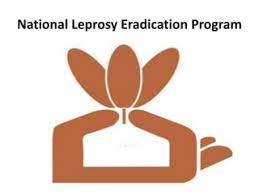Ahmedabad
(Head Office)Address : 506, 3rd EYE THREE (III), Opp. Induben Khakhrawala, Girish Cold Drink Cross Road, CG Road, Navrangpura, Ahmedabad, 380009.
Mobile : 8469231587 / 9586028957
Telephone : 079-40098991
E-mail: dics.upsc@gmail.com

Leprosy Eradication in India
News: Recently, The Health Ministry, has introduced a new treatment regimen for leprosy, with the ambitious goal of halting its transmission at the sub-national level by 2027.
Background:
• Ministry of Health and Family Welfare has greenlit a three-drug regimen for Pauci-Bacillary (PB) cases, replacing the existing two-drug regimen lasting six months.
What is Leprosy?
• Leprosy, also known as Hansen’s disease, is a long-term infection caused by the bacteria Mycobacterium leprae or Mycobacterium lepromatosis. This infection can lead to damage of the nerves, respiratory tract, skin, and eyes.
• The disease predominantly affects the skin and peripheral nerves. Left untreated, the disease may causeprogressive and permanent disabilities. The bacteria are transmitted via droplets from the nose and mouth during close and frequent contact with untreated cases.
• Symptoms of leprosy may begin within one year, but for some people, symptoms may take 20 years or more to occur.
• An infected person may experience muscle weakness and poor eyesight. This nerve damage may result in a lack of ability to feel pain, which can lead to the loss of parts of a person’s extremities from repeated injuries or infection through unnoticed wounds.
What is the rationale behind 3 drug regime?
• PB patients exhibit fewer visible bacteria and show no signs of advanced disease in biopsies, while MB patients have visible bacteria and may display indications of more advanced disease.
• The new treatment regimen is seen as a significant stride towards achieving the collective goal of eradicating leprosy in India by 2027.
Implementation Timeline and WHO\'s Role
• The World Health Organization (WHO) has committed to providing the revised drug regimen starting April 1, 2025.
• States and Union Territories are urged to submit their requisitions for anti-leprosy drugs a year in advance. Simultaneously, the revised classification of leprosy and the treatment regimen for PB and multi-bacillary (MB) cases in India will come into effect.
• Despite the efficacy of the existing two-drug regimen, the introduction of a third drug, clofazamine, has been met with some questioning. Healthcare experts, point out that the two-drug regimen is already effective, and the third drug may introduce additional side effects.

Address : 506, 3rd EYE THREE (III), Opp. Induben Khakhrawala, Girish Cold Drink Cross Road, CG Road, Navrangpura, Ahmedabad, 380009.
Mobile : 8469231587 / 9586028957
Telephone : 079-40098991
E-mail: dics.upsc@gmail.com
Address: A-306, The Landmark, Urjanagar-1, Opp. Spicy Street, Kudasan – Por Road, Kudasan, Gandhinagar – 382421
Mobile : 9723832444 / 9723932444
E-mail: dics.gnagar@gmail.com
Address: 2nd Floor, 9 Shivali Society, L&T Circle, opp. Ratri Bazar, Karelibaugh, Vadodara, 390018
Mobile : 9725692037 / 9725692054
E-mail: dics.vadodara@gmail.com
Address: 403, Raj Victoria, Opp. Pal Walkway, Near Galaxy Circle, Pal, Surat-394510
Mobile : 8401031583 / 8401031587
E-mail: dics.surat@gmail.com
Address: 303,305 K 158 Complex Above Magson, Sindhubhavan Road Ahmedabad-380059
Mobile : 9974751177 / 8469231587
E-mail: dicssbr@gmail.com
Address: 57/17, 2nd Floor, Old Rajinder Nagar Market, Bada Bazaar Marg, Delhi-60
Mobile : 9104830862 / 9104830865
E-mail: dics.newdelhi@gmail.com